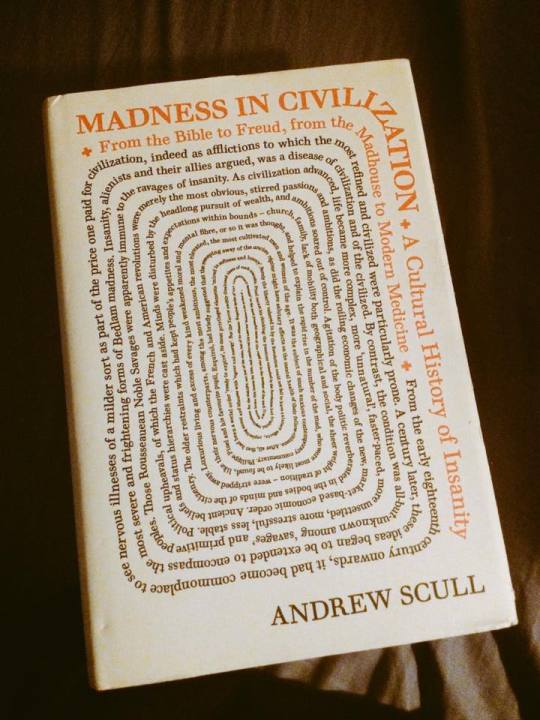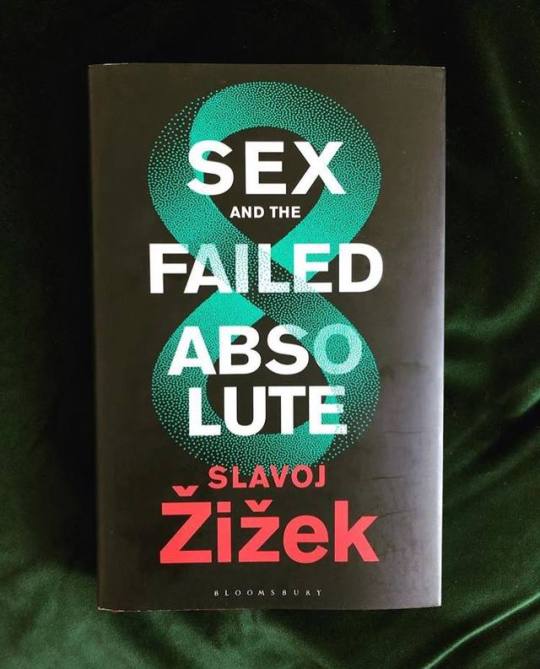Photo

Hegel’s Phenomenology of Spirit Mask 🦉 https://www.teepublic.com/mask/1890183-hegels-phenomenology-of-spirit << Worldwide Shipping
30 notes
·
View notes
Photo

Wittgenstein’s Nephew is an autobiographical work by Thomas Bernhard, originally published in 1982. It is a recollection of the author's friendship with Paul Wittgenstein, the nephew of Ludwig Wittgenstein and a member of the wealthy Viennese Wittgenstein family. Paul suffers from an unnamed mental illness for which he is repeatedly hospitalized, paralleling Bernhard's own struggle with a chronic lung disease.
Thomas Bernhard - Wittgenstein's Nephew : A Friendship https://bit.ly/3d9hKnh - free delivery worldwide
6 notes
·
View notes
Photo

The stories in these pages comprise all the surviving fiction of a man described by John Updike in the introduction as ‘one of the great transmogrifiers of the world into words’. They portray the doom-ridden yet comic world of a small Polish town in the years before the war, a world brought vividly to life in prose as memorable and as unique as are the brushstrokes of Marc Chagall.
The Street of Crocodiles in the Polish city of Drogobych is a street of memories and dreams where recollections of Bruno Schulz's uncommon boyhood and of the eerie side of his merchant family's life are evoked in a startling blend of the real and the fantastic. Most memorable - and most chilling - is the portrait of the author's father, a maddened shopkeeper who imports rare birds' eggs to hatch in his attic, who believes tailors' dummies should be treated like people, and whose obsessive fear of cockroaches causes him to resemble one.
Sanatorium Under the Sign of the Hourglass is the second and final work of Bruno Schulz, the acclaimed Polish writer killed by the Nazis during World War II. In the words of Isaac Bashevis Singer, "What he did in his short life was enough to make him one of the most remarkable writers who ever lived." Weaving myth, fantasy, and reality, Sanatorium Under the Sign of the Hourglass, is, to quote Schulz, "an attempt at eliciting the history of a certain family...by a search for the mythical sense, the essential core of that history.
The Fictions of Bruno Schulz: The Street of Crocodiles & Sanatorium Under the Sign of the Hourglass - https://bit.ly/2IRI7jI - free delivery worldwide
7 notes
·
View notes
Photo

"I’m searching, I’m searching. I’m trying to understand. Trying to give what I’ve lived to somebody else and I don’t know to whom, but I don’t want to keep what I lived. I don’t know what to do with what I lived, I’m afraid of that profound disorder. I don’t trust what happened to me. Did something happen to me that I, because I didn’t know how to live it, lived as something else? That’s what I’d like to call disorganization, and I’d have the confidence to venture on, because I would know where to return afterward: to the previous organization. I’d rather call it disorganization because I don’t want to confirm myself in what I lived — in the confirmation of me I would lose the world as I had it, and I know I don’t have the fortitude for another.”
― Clarice Lispector, The Passion According to G.H. - https://bit.ly/2U8237h - free delivery worldwide
9 notes
·
View notes
Photo

“For I regard memory not as a phenomenon preserving one thing and losing another merely by chance, but as a power that deliberately places events in order or wisely omits them. Everything we forget about our own lives was really condemned to oblivion by an inner instinct long ago.”
― Stefan Zweig, The World of Yesterday: https://bit.ly/33q6TRG - free delivery worldwide
5 notes
·
View notes
Photo

📕 𝗔 𝗡𝗘𝗪 𝗕𝗢𝗢𝗞 - https://bit.ly/2THS88e - by Slavoj Žižek: A Left that Dares to Speak Its Name - 34 Untimely Interventions (2020) - https://bit.ly/2THS88e << �� free delivery worldwide
With irrepressible humor, Slavoj Žižek dissects our current political and social climate, discussing everything from Jordan Peterson and sex "unicorns" to Greta Thunberg and Chairman Mao. Taking aim at his enemies on the Left, Right, and Center, he argues that contemporary society can only be properly understood from a communist standpoint.
Why communism? The greater the triumph of global capitalism, the more its dangerous antagonisms multiply: climate collapse, the digital manipulation of our lives, the explosion in refugee numbers - all need a radical solution. That solution is a Left that dares to speak its name, to get its hands dirty in the real world of contemporary politics, not to sling its insults from the sidelines or to fight a culture war that is merely a fig leaf covering its political and economic failures. As the crises caused by contemporary capitalism accumulate at an alarming rate, the Left finds itself in crisis too, beset with competing ideologies and prone to populism, racism, and conspiracy theories.
A Left that Dares to Speak Its Name is Žižek's attempt to elucidate the major political issues of the day from a truly radical Leftist position. The first three parts explore the global political situation and the final part focuses on contemporary Western culture, as ?i?ek directs his polemic to topics such as wellness, Wikileaks, and the rights of sexbots. This wide-ranging collection of essays provides the perfect insight into the ideas of one of the most influential radical thinkers of our time.
📕 A Left that Dares to Speak Its Name - 34 Untimely Interventions (2020) - https://bit.ly/2THS88e << 🌎 free delivery worldwide
TABLE OF CONTENTS
Introduction: From the Communist Standpoint
The Global Mess
1 200 Years After: Is Marx Alive, Dead, or a Living Dead?
2 Why Secondary Contradictions Matter: A Maoist View
3 Nomadic // Proletarians
4 Should the Left’s Answer to Rightist Populism Really be a “Me Too”?
5 When Unfreedom Itself is Experienced as Freedom
6 Only Autistic Children Can Save Us!
7 They are Both Worse!
8 A Desperate Call for (T)Reason
The West…
9 Democratic Socialism and Its Discontents
10 Is Donald Trump a Frog Embracing a Bottle of Beer?
11 Better Dead than Red!
12 “There is Disorder Under Heaven, the Situation is Excellent”
13 Soyons realistes, demandons l’impossible!
14 Catalonia and the End of Europe
15 Which Idea of Europe is Worth Defending?
16 The Right to Tell the Public Bad News
…And The Rest
17 It’s the Same Struggle, Dummy!
18 The Real Anti-Semites and Their Zionist Friends
19 Yes, Racism is Alive and Well!
20 What is to be Done When Our Cupola is Leaking?
21 Is China Communist or Capitalist?
22 Venezuela and the Need for New Clichés
23 Welcome to the True New World Order!
24 A True Miracle in Bosnia
Ideology
25 For Active Solidarity, Against Guilt and Self-Reproach
26 Sherbsky Institute, APA
27 Welcome to the Brave New World of Consenticorns!
28 Do Sexbots have Rights?
29 Nipples, Penis, Vulva…and Maybe Shit
30 Cuaron’s Roma: The Trap of Goodness
31 Happiness? No, Thanks!
32 Assange has Only us to Help Him!
Appendix
33 Is Avital Ronell Really Toxic?
34 Jordan Peterson as a Symptom…of What?
📕 A Left that Dares to Speak Its Name - 34 Untimely Interventions (2020) - https://bit.ly/2THS88e << 🌎 free delivery worldwide
1 note
·
View note
Photo

A Cultural History of Insanity, from the Bible to Freud, from the Madhouse to Modern Medicine
Madness in Civilization: https://bit.ly/30tzNO7 - free delivery worldwide
The loss of reason, a sense of alienation from the commonsense world we all like to imagine we inhabit, the shattering emotional turmoil that seizes hold and won't let go―these are some of the traits we associate with madness. Today, mental disturbance is most commonly viewed through a medical lens, but societies have also sought to make sense of it through religion or the supernatural, or by constructing psychological or social explanations in an effort to tame the demons of unreason. Madness in Civilization traces the long and complex history of this affliction and our attempts to treat it.
Beautifully illustrated throughout, Madness in Civilization takes readers from antiquity to today, painting a vivid and often harrowing portrait of the different ways that cultures around the world have interpreted and responded to the seemingly irrational, psychotic, and insane. From the Bible to Sigmund Freud, from exorcism to mesmerism, from Bedlam to Victorian asylums, from the theory of humors to modern pharmacology, the book explores the manifestations and meanings of madness, its challenges and consequences, and our varied responses to it. It also looks at how insanity has haunted the imaginations of artists and writers and describes the profound influence it has had on the arts, from drama, opera, and the novel to drawing, painting, and sculpture.
Written by one of the world's preeminent historians of psychiatry, Madness in Civilization is a panoramic history of the human encounter with unreason.
Madness in Civilization: https://bit.ly/30tzNO7 - free delivery worldwide
7 notes
·
View notes
Photo

“Formerly man had only a body and a soul. Now he needs a passport as well for without it he will not be treated like a human being.”
― Stefan Zweig, The World of Yesterday: https://bit.ly/33q6TRG - free delivery worldwide
2 notes
·
View notes
Photo


🦉 Zizek’s Jokes: https://bit.ly/2C6pIMT - free delivery worldwide
9 notes
·
View notes
Photo


“A serious and good philosophical work could be written consisting entirely of jokes.”―Ludwig Wittgenstein
🦉 Zizek’s Jokes: https://bit.ly/2C6pIMT - free delivery worldwide
The good news is that this book offers an entertaining but enlightening compilation of Žižekisms. Unlike any other book by Slavoj Žižek, this compact arrangement of jokes culled from his writings provides an index to certain philosophical, political, and sexual themes that preoccupy him. Žižek's Jokes contains the set-ups and punch lines―as well as the offenses and insults―that Žižek is famous for, all in less than 200 pages.
So what's the bad news? There is no bad news. There's just the inimitable Slavoj Žižek, disguised as an impossibly erudite, politically incorrect uncle, beginning a sentence, “There is an old Jewish joke, loved by Derrida...“ For Žižek, jokes are amusing stories that offer a shortcut to philosophical insight. He illustrates the logic of the Hegelian triad, for example, with three variations of the “Not tonight, dear, I have a headache” classic: first the wife claims a migraine; then the husband does; then the wife exclaims, “Darling, I have a terrible migraine, so let's have some sex to refresh me!” A punch line about a beer bottle provides a Lacanian lesson about one signifier. And a “truly obscene” version of the famous “aristocrats” joke has the family offering a short course in Hegelian thought rather than a display of unspeakables.
Žižek's Jokes contains every joke cited, paraphrased, or narrated in Žižek's work in English (including some in unpublished manuscripts), including different versions of the same joke that make different points in different contexts. The larger point being that comedy is central to Žižek's seriousness.
🦉 Zizek’s Jokes: https://bit.ly/2C6pIMT free delivery worldwide
8 notes
·
View notes
Photo

Works of Wilde’s annus mirabilis of 1891 in one volume, with an introduction by renowned British playwright
Oscar Wilde: In Praise of Disobedience - https://bit.ly/33FZgpb - free delivery worldwide
In Praise of Disobedience draws on works from a single miraculous year in which Oscar Wilde published the larger part of his greatest works in prose—the year he came into maturity as an artist. Before the end of 1891, he had written the first of his phenomenally successful plays and met the young man who would win his heart, beginning the love affair that would lead to imprisonment and public infamy.
In a witty introduction, playwright, novelist and Wilde scholar Neil Bartlett explains what made this point in the writer’s life central to his genius and why Wilde remains a provocative and radical figure to this day.
Included here are the entirety of Wilde’s foray into political philosophy, The Soul of Man Under Socialism, the complete essay collection Intentions, selections from The Portrait of Dorian Gray as well as its paradoxical and scandalous preface, and some of Wilde’s greatest fictions for children. Each selection is accompanied by stimulating and enlightening annotations. A delight for fans of Oscar Wilde, In Praise of Disobedience will revitalize an often misunderstood legacy.
Oscar Wilde: In Praise of Disobedience - https://bit.ly/33FZgpb - free delivery worldwide
8 notes
·
View notes
Photo

“A fire broke out backstage in a theatre. The clown came out to warn the public; they thought it was a joke and applauded. He repeated it; the acclaim was even greater. I think that's just how the world will come to an end: to general applause from wits who believe it's a joke.”
― Soren Kierkegaard, Either/Or, Part I - https://bit.ly/2B6Rbxc - free delivery worldwide
Kierkegaard 🤡 T-Shirts / Hoodies / Crewnecks / Mugs / Stickers / Tote Bags >> https://www.teepublic.com/t-shirt/6312051-soren-kierkegaard << 🔥 Worldwide Shipping
9 notes
·
View notes
Photo

NOT TODAY SATAN 😈 T-Shirts / Hoodies / Crewnecks / Mugs / Stickers / Tote Bags >> https://www.teepublic.com/t-shirt/6310616-not-today-satan << 🔥 Worldwide Shipping
4 notes
·
View notes
Photo

Why sexuality is at the point of a "short circuit" between ontology and epistemology.
What IS Sex? - https://bit.ly/2JOsqLC - free delivery worldwide
Consider sublimation-conventionally understood as a substitute satisfaction for missing sexual satisfaction. But what if, as Lacan claims, we can get exactly the same satisfaction that we get from sex from talking (or writing, painting, praying, or other activities)? The point is not to explain the satisfaction from talking by pointing to its sexual origin, but that the satisfaction from talking is itself sexual. The satisfaction from talking contains a key to sexual satisfaction (and not the other way around)-even a key to sexuality itself and its inherent contradictions. The Lacanian perspective would make the answer to the simple-seeming question, "What is sex?" rather more complex. In this volume in the Short Circuits series, Alenka Zupancic approaches the question from just this perspective, considering sexuality a properly philosophical problem for psychoanalysis; and by psychoanalysis, she means that of Freud and Lacan, not that of the kind of clinician practitioners called by Lacan "orthopedists of the unconscious."
Zupancic argues that sexuality is at the point of a "short circuit" between ontology and epistemology. Sexuality and knowledge are structured around a fundamental negativity, which unites them at the point of the unconscious. The unconscious (as linked to sexuality) is the concept of an inherent link between being and knowledge in their very negativity.
What IS Sex? - https://bit.ly/2JOsqLC - free delivery worldwide
3 notes
·
View notes
Photo

📖 Freud as Philosopher: https://bit.ly/2mgSSEk - free delivery worldwide
2 notes
·
View notes
Photo

📗 Slavoj Žižek: Sex and the Failed Absolute - https://bit.ly/2m9vAA3 - free delivery worldwide
In the most rigorous articulation of his philosophical system to date, Slavoj Žižek provides nothing short of a new definition of dialectical materialism.
In forging this new materialism, Žižek critiques and challenges not only the work of Alain Badiou, Robert Brandom, Joan Copjec, Quentin Meillassoux, and Julia Kristeva (to name but a few), but everything from popular science and quantum mechanics to sexual difference and analytic philosophy. Alongside striking images of the Möbius strip, the cross-cap, and the Klein bottle, Žižek brings alive the Hegelian triad of being-essence-notion. Radical new readings of Hegel, and Kant, sit side by side with characteristically lively commentaries on film, politics, and culture.
Here is Žižek at his interrogative best.
📗 Slavoj Žižek: Sex and the Failed Absolute - https://bit.ly/2m9vAA3 - free delivery worldwide
NTRODUCTION: THE UNORIENTABLE SURFACE OF DIALECTICAL MATERIALISM
THEOREM I: THE PARALLAX OF ONTOLOGY
Modalities of the Absolute-Reality and Its Transcendental Supplement – Varieties of the Transcendental in Western Marxism - The Margin of Radical Uncertainty
COROLLARY 1: INTELLECTUAL INTUITION AND INTELLECTUS ARCHETYPUS: REFLEXIVITY IN KANT AND HEGEL
Intellectual Intuition from Kant to Hegel-From Intellectus Ectypus to Intellectus Archetypus
SCHOLIUM 1.1: BUDDHA, KANT, HUSSERL
SCHOLIUM 1.2: HEGEL'S PARALLAX
SCHOLIUM 1.3: THE “DEATH OF TRUTH”
THEOREM II: SEX AS OUR BRUSH WITH THE ABSOLUTE
Antinomies of Pure Sexuation-Sexual Parallax and Knowledge-The Sexed Subject - Plants, Animals, Humans, Posthumans
COROLLARY 2: SINUOSITIES OF SEXUALIZED TIME
Days of the Living Dead – Cracks in Circular Time
SCHOLIUM 2.1: SCHEMATISM IN KANT, HEGEL… AND SEX
SCHOLIUM 2.2: MARX, BRECHT, AND SEXUAL CONTRACTS
SCHOLIUM 2.3: THE HEGELIAN REPETITION
SCHOLIUM 2.4: SEVEN DEADLY SINS
THEOREM III: THE THREE UNORIENTABLES
Möbius Strip, or, the Convolutions of Concrete Universality-The “Inner Eight”-(((Suture Redoubled)))-Cross-Capping Class Struggle-From Cross-Cap to Klein Bottle-A Snout in Plato's Cave
COROLLARY 3: THE RETARDED GOD OF QUANTUM ONTOLOGY
The Implications of Quantum Gravity-The Two Vacuums: From Less than Nothing to Nothing – Is the Collapse of a Quantum Wave Like a Throw of Dice?
SCHOLIUM 3.1: THE ETHICAL MOEBIUS STRIP
SCHOLIUM 3.2: THE DARK TOWER OF SUTURE
SCHOLIUM 3.3: SUTURE AND HEGEMONY
SCHOLIUM 3.4: THE WORLD WITH(OUT) A SNOUT
SCHOLIUM 3.5: TOWARDS A QUANTUM PLATONISM
THEOREM IV: THE PERSISTENCE OF ABSTRACTION
Madness, Sex, War- How to Do Words with Things-The Inhuman View – The All-Too-Close In-Itself
COROLLARY 4: IBI RHODUS IBI SALTUS!
The Protestant Freedom-Jumping Here and Jumping There-Four Ethical Gestures
SCHOLIUM 4.1: LANGUAGE, LALANGUE
SCHOLIUM 4.2 - PROKOFIEV'S TRAVELS
SCHOLIUM 4.3: BECKETT AS THE WRITER OF ABSTRACTION
📗 Slavoj Žižek: Sex and the Failed Absolute - https://bit.ly/2m9vAA3 - free delivery worldwide
5 notes
·
View notes
